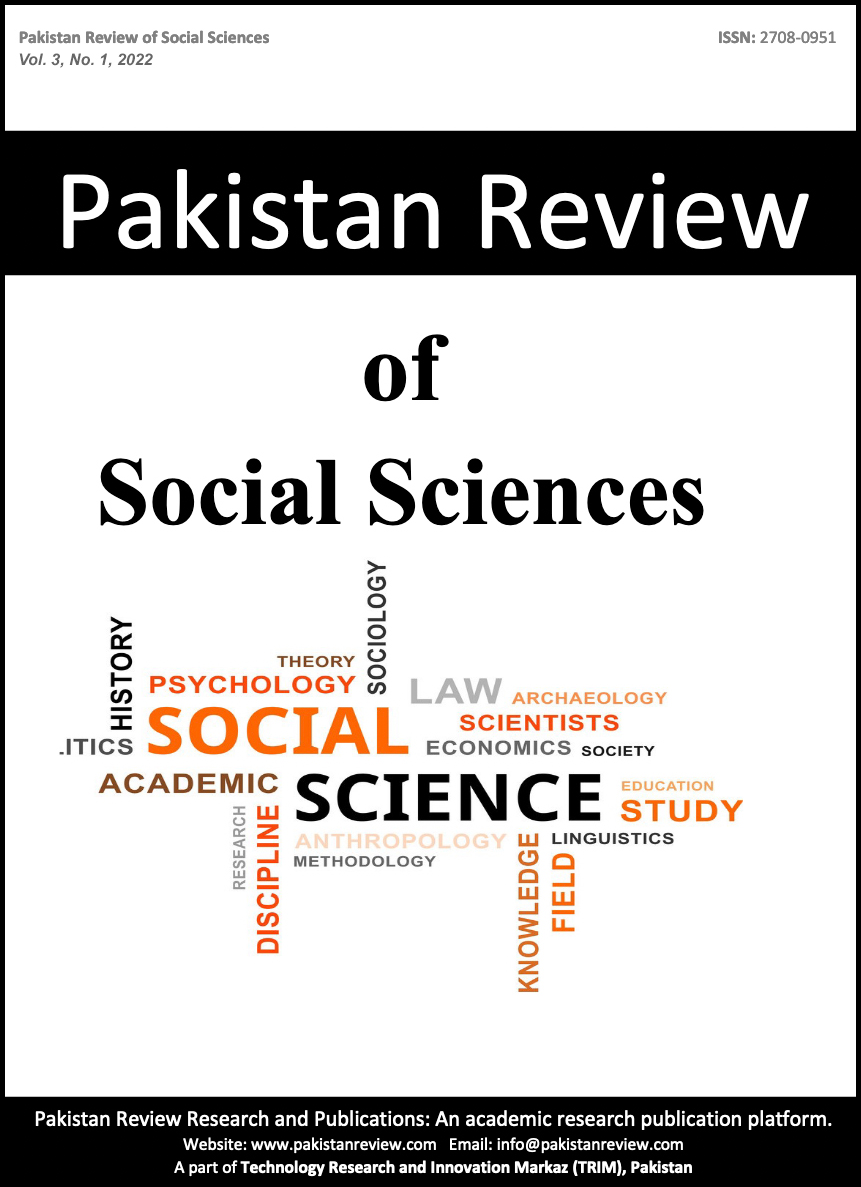Exploring Religious Scholars Perspectives on Child Physical Abuse: A Case Study of District Malakand
Abstract
Abstract
Child physical abuse is a significant global concern, and its prevalence varies across cultures and societies. This case study focuses on District Malakand, exploring the perspectives of religious scholars on child physical abuse. The study is qualitative in nature, utilizing purposive sampling to select 10 religious scholars as respondents. Islamic teachings emphasize the protection and welfare of children, promoting kindness and mercy. While Islam does not support physical punishment, some mild forms of discipline are allowed under specific circumstances. The findings reveal that religious scholars and teachers are not in favor of physical abuse due to its negative psychosocial impacts on the child's development. The study sheds light on the need to eradicate physical abuse from educational institutions and homes to create a nurturing environment for children in accordance with Islamic teachings.
Keywords: Physical Abuse, Child, Islamic, Malakand, Punishment
Downloads
Published
How to Cite
Issue
Section
License
Copyright (c) 2023 Pakistan Review of Social Sciences (PRSS)

This work is licensed under a Creative Commons Attribution 4.0 International License.
Submission declaration
Authors have copyright but license exclusive rights in their article to the publisher. Author's submission implies that the work described has not been published previously (except in the form of an abstract or as part of a published lecture or academic thesis), that it is not under consideration for publication elsewhere, that its publication is approved by all authors and tacitly or explicitly by the responsible authorities where the work was carried out, and that, if accepted, it will not be published elsewhere including electronically in the same form, in English or in any other language, without the written consent of the copyright-holder.



